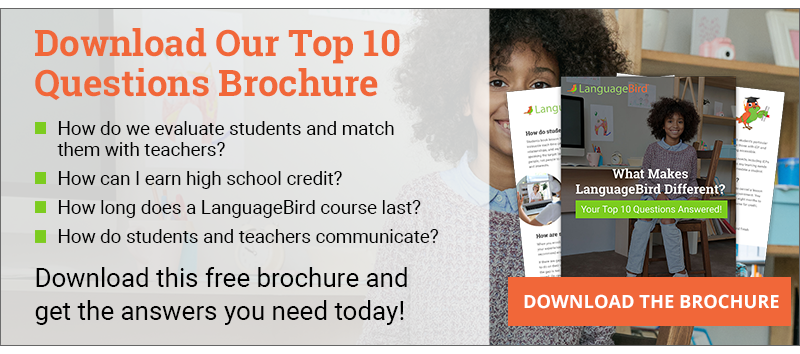
What Most Language Apps DON’T Teach You
Language students have been teaching themselves for many decades through books on tape, computer software, and textbooks. In recent years, language learning apps have developed as a flexible, affordable way for students to learn a new language. As convenient as these apps are, do they teach a student everything they need to know in order to master a new language? Read on to learn what most language apps do not teach and where the best online language courses are.

Conversation
One of the most difficult things to simulate is organic, spontaneous conversation. A language learning app teaches basic vocabulary well, but mimicking natural conversation is nearly impossible as conversation goes beyond words, grammar, and phrases. Take Italian, for example; Italians are infamous for their use of hand gestures and body language to accompany their conversations. A language app will not teach the animated gestures and facial expressions Italian speakers often use to emphasize certain words and more deeply convey their emotions.
Communicate with Native Speakers
The goal of learning a language is ultimately to communicate with native speakers. Conversation is what connects humans to one another, and the best way to learn conversational skills is with another person. As convenient as language apps are, they cannot replace the immersive experience students receive when conversing with a live, native-speaking instructor.
The Best Online Language Courses Teach: Accent
Continued exposure to an authentic accent is important in building listening comprehension and developing pronunciation when learning a new language. Although a learner should hear a proper accent in a language learning app, they will not receive in-depth coaching on how to perfect their own accent in the target language. Proper pronunciation and practicing the target accent are key to being understood when a language learner puts their knowledge to use. Further, a live instructor can teach a student about different accents that exist within a language to help expand students’ overall comprehension.
Listening Comprehension
Another significant lapse in language learning software is that it cannot teach you slang words, colloquialisms, and importantly, their proper context. Informal speech and slang words develop more quickly than formal speech, which can be difficult for language apps to keep up with. Even if a language app can define slang words or colloquial speech, it is difficult to put those in proper context. A live language tutor is the best resource for learning informal speech, and importantly, learning when to use it.
Vocal Fillers
Humans in any language rarely speak without using vocal fillers. Unless delivering a professional presentation or speech, English speakers often pause with words and sounds such as “like,” uh,” “well,” or “so.” Students who are trying to gain exposure to a new language solely through an app will not develop an ear for vocal fillers and will therefore fall behind in overall listening comprehension. Understanding vocal fillers and being able to use them effectively in speech are a seemingly small part of language that significantly differentiate casual learners from more serious ones.
Master a World Language with the Best Online Language Courses
Ready to embark on a cultural and linguistic journey sure to set you on the path towards mastering a world language? Sign up for a program with LanguageBird today and discover a new language with the help of a live, native-speaking instructor! Contact us to learn more.




